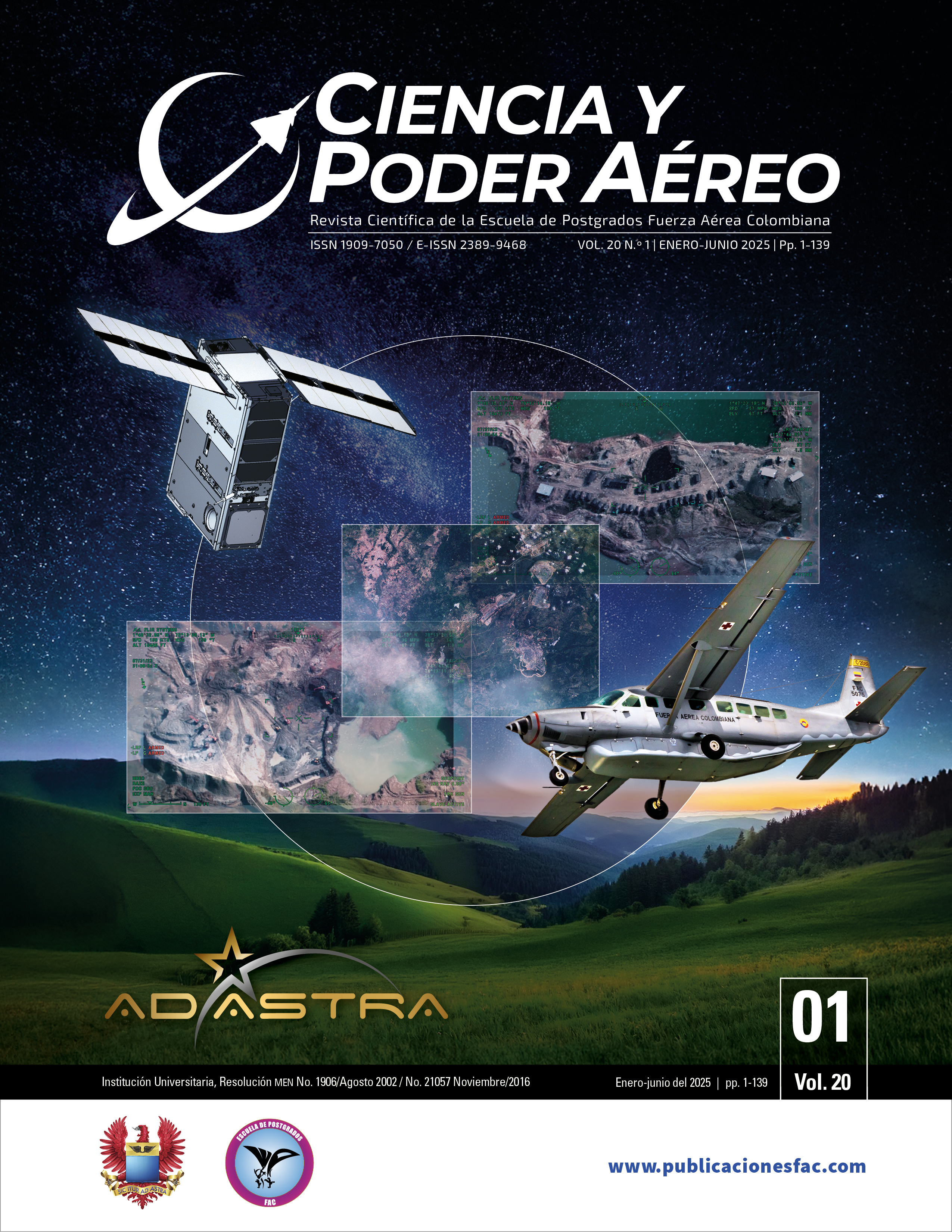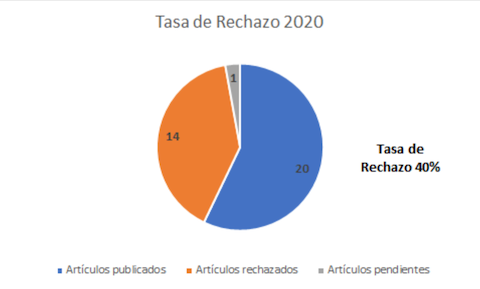Species-Specific ImpactRisk Index (ssiri) of birds inColombian airports
DOI:
https://doi.org/10.18667/cienciaypoderaereo.815Keywords:
Wildlife control, risk assessment, bird hazard, species-specific risk, aviation safetyAbstract
Most wildlife-aircraft collisions involve birds, but some species are more prone than
others to being involved in such incidents; therefore, it is necessary to identify the level of risk
inherent to each bird species, that is, species-specific risk. To address this, the Species-Specific
Impact Risk Index (ssiri) is proposed as a quantitative and standardized tool consisting of an
eight-variable multi-matrix, with each variable having three states. Additionally, a pre-existing
method is suggested to obtain the relative weight or contribution of each variable to the total
risk, and the strengths and limitations of each variable, as well as the method in general, are
discussed. The ssiri aims to be an objective and practical assessment tool for regular implementation
at most airports in Colombia, and is designed as an easily interpretable and manageable
method that only requires accessible information from field observations.
Downloads
References
Aerocivil. (2016). Programa de limitación de fauna en aeródromos [en línea]. https://www.aerocivil.gov.co/autoridad-de-la-aviacion-civil/Aerodromos/Documents/Programa%20nacional%20de%20limitaci%C3%B3n%20de%20fauna%20en%20aer%C3%B3dromos.pdf
Aerocivil. (2019). Reglamentos Aeronáuticos de Colombia (rac) [en línea]. https://www.aerocivil.gov.co/autoridad-de-laaviacion-civil/reglamentacion/rac
Anagnostopoulos, A. (2003). Bird Strike Risk Assessment for Athens International Airport [en línea]. https://www.aerohabitat.eu/uploads/media/BIRDSTRIKE_RISK_ASSESSMENT.pdf
Allan, J. (2006). A Heuristic Risk Assessment Technique for Birdstrike Management at Airports. Risk Analysis, 26(3), 723-729. https://doi.org/10.1111/j.1539-6924.2006.00776.x DOI: https://doi.org/10.1111/j.1539-6924.2006.00776.x
Alhumaidi, S.H.S., Alruwaili, I.Y.N. y Wheeler, B. (2023). u.s. Wildlife Strikes by Phase of Flight. Journal of Management & Engineering Integration, 16(1), 39-47. https://doi.org/10.62704/10057/25980 DOI: https://doi.org/10.62704/10057/25980
Barrientos, C., González-Acuña, D., Moreno, L., Ardiles, K. y Figueroa, R. A. (2016). Aves asociadas al Aeropuerto Carriel Sur de Talcahuano, sur de Chile: evaluación de peligro aviario. Gayana (Concepción), 80(1), 40-55. http://dx.doi.org/10.4067/S0717-65382016000100005 DOI: https://doi.org/10.4067/S0717-65382016000100005
Blackwell, B. F. y Fernández-Juricic, E. (2013). Behavior and physiology in the development and application of visual deterrents at airports. Wildlife in Airport Environments: Preventing Animal-Aircraft Collisions through Science-Based Management. The Johns Hopkins University Press (T. L. DeVault, B. F. Blackwell y J. L. Belant, eds.; pp. 11-22).
Carter, N. B. (2001). All birds are not created equal: Risk assessment and prioritization of wildlife hazards at airfields [ponencia]. 2001 Bird Strike Committee-usa/ Canada, Third Joint Annual Meeting, Calgary [en línea]. https://digitalcommons.unl.edu/cgi/viewcontent.cgi?article=1007&context=birdstrike2001
Civil Aviation Authority (CAA). (2002). Aerodrome Bird Control. Report Prepared by the Safety Regulation Group. CAA.
Coccon, F., Zucchetta, M., Bossi, G., Borrotti, M., Torricelli, P. y Franzoi, P. (2015). A Land-Use Perspective for Birdstrike Risk Assessment: The Attraction Risk Index. PLoS ONE, 10(6). https://doi.org/10.1371/journal.pone.0128363 DOI: https://doi.org/10.1371/journal.pone.0128363
DeVault, T. L., Blackwell, B. F., Seamans, T. W., Begier, M. J., Kougher, J. D., Washburn, J. E., Miller, P. R. y Dolbeer, R. A. (2018). Estimating Interspecific Economic Risk of Bird Strikes with Aircraft. Wildlife Society Bulletin, 42(1), 94-101. https://doi.org/10.1002/wsb.859 DOI: https://doi.org/10.1002/wsb.859
Dolbeer, R. A., Wright, S. E. y Cleary, E. C. (2000). Ranking the Hazard Level of Wildlife Species to Aviation. Wildlife Society Bulletin, 28(2), 372-378. https://www.jstor.org/stable/3783694
Dolbeer, R., Begier, M., Miller, P., Weller, J. y Anderson, A. (2023). Wildlife Strikes to Civil Aircraft in the United States, 1990-2022 [en línea]. https://www.faa.gov/airports/airport_safety/wildlife/wildlife_strikes_civil_aircraft_united_states_1990_2022
European Aviation Safety Agency (easa). (2009). Bird Strike Damage and Windshield Bird Strike [en línea]. https://www.easa.europa.eu/en/document-library/researchreports/easa2008c49
El-Sayed, A. F. (2019). Bird Strike in Aviation: Statistics, Analysis and Management. John Wiley & Sons. DOI: https://doi.org/10.1002/9781119529835
Fernández-Juricic, E., Brand, J., Blackwell, B. F., Seamans, T. W. y DeVault, T. L. (2018). Species with Greater Aerial Maneuverability have Higher Frequency of Collisions with Aircraft: A Comparative Study. Frontiers in Ecology and Evolution, 6. https://doi.org/10.3389/fevo.2018.00017 DOI: https://doi.org/10.3389/fevo.2018.00017
Fu, H., Su, M. S., Chu, J. J., Margaritescu, A. y Claramunt, S. (2023). New Methods for Estimating the Total Wing Area of Birds. Ecology and Evolution, 13(9). https://doi.org/10.1002/ece3.10480 DOI: https://doi.org/10.1002/ece3.10480
Gerringer, M., Lima, S. y DeVault, T. (2016). Evaluation of an avian radar system in a midwestern landscape. Wildlife Society Bulletin, 40(1), 150-159. https://doi.org/10.1002/wsb.614 DOI: https://doi.org/10.1002/wsb.614
Gutiérrez-Serralde, S. M., Soldatitni, C., Albores-Barajas, Y. V., Rosas-Hernández, M. P., De la Cueva, H. y Rangel-Barón, P. (2023). Comparing Bird Strike Risk Assessment Methods: A New Perspective for Safety Management. European Journal of Wildlife Research, 69(57). DOI: https://doi.org/10.1007/s10344-023-01691-1
Godínez, E. (2006). Aves y aeronaves: riesgos y peligros (3.a ed.). Amazon.
Hively, D. (2011). Biological modeling in data poor scenarios [thesis dissertation, University of California]. https://users.soe.ucsc.edu/~msmangel/Hively%20MS.pdf
Holbech, L. H., Asamoah, A. y Owusu, E. H. (2015). A Rapid Assessment of Species-Specific Bird Strike Risk at the Kotoka International Airport in Accra, Ghana. Ostrich, 86(3), 277-285. https://www.ajol.info/index.php/ostrich/article/view/141530 DOI: https://doi.org/10.2989/00306525.2015.1068878
Hong, M.-J., Kim, M.-S., Moon, Y.-M., Choi, J.-H., Lee, W.-S. y Yoo, J.-C. (2019). A Comparison of Single and Multi-Matrix Models for Bird Strike Risk Assessment. Korean Journal of Environment and Ecology, 33(6), 624-635. https://doi.org/10.13047/KJEE.2019.33.6.624 DOI: https://doi.org/10.13047/KJEE.2019.33.6.624
MacKinnon, B. (2004). Sharing the Skies: An Aviation Industry Guide to the Management of Wild Life Hazards (Transportation Canada, ed.). Aviation Publishing Division.
Marateo, G., Grilli, P. G., Ferretti, V. y Bouzas, N. (2011). Diagnóstico de riesgo aviario en un aeródromo de un aérea megadiversa del Perú. Revista Conexión SIPAER, 2(3), 203-227. http://conexaosipaer.com.br/index.php/sipaer/article/viewFile/101/141
Morgenroth, C. (2003). Development of an Index for Calculating the Flight Safety Relevance of Bird Species for an Assessment of the Bird Strike Hazard at Airports. Bird and Aviation, 23(2), 1-7.
Metz, I. C., Ellerbroek, J., Mühlhausen, T., Kügler, D., Kern, S. y Hoekstra, J. M. (2021a). The Efficacy of Operational Bird Strike Prevention. Aerospace, 8(1), 17. https://doi.org/10.3390/aerospace8010017 DOI: https://doi.org/10.3390/aerospace8010017
Metz, I. C., Ellerbroek, J., Mühlhausen, T., Kügler, D. y Hoekstra, J. M. (2021b). Analysis of Risk-Based Operational Bird Strike Prevention. Aerospace, 8(2). https://doi.org/10.3390/aerospace8020032 DOI: https://doi.org/10.3390/aerospace8020032
Ning, H. y Chen, W. (2014). Bird Strike Risk Evaluation at Airports. Aircraft Engineering and Aerospace Technology, 86(2), 129-137. https://doi.org/10.1108/AEAT-07-2012-0111 DOI: https://doi.org/10.1108/AEAT-07-2012-0111
Pujiula, D. J. (1925). Nota sobre la irreductibilidad de la biología a las matemáticas. Institució Catalana d’Història Natural [en línea]. https://publicacions.iec.cat/repository/pdf/00000134/00000020.pdf
Roa, J. G. (2007). Estimación de áreas susceptibles a deslizamientos mediante datos e imágenes satelitales: cuenca del río Mocotíes, estado Mérida-Venezuela. Revista Geográfica Venezolana, 48(2), 183-219. http://www.saber.ula.ve/handle/123456789/24702
Saaty, T. L. (2000). Fundamental of Decision and Priority Theory. RWS Publications.
Saaty, T. L. (2008). Decision Making with the Analytic Hierarchy Process. International Journal of Services Sciences, 1(1), 83-98. https://dx.doi.org/10.1504/IJSSCI.2008.017590 DOI: https://doi.org/10.1504/IJSSCI.2008.017590
Shao, Q., Zhou, Y., Zhu, P., Ma, Y. y Shao, M. (2020a). Key Factors Assessment on Bird Strike Density Distribution in Airport Habitats: Spatial Heterogeneity and Geographically Weighted Regression Model. Sustainability, 12(18). https://doi.org/10.3390/su12187235 DOI: https://doi.org/10.3390/su12187235
Shao, Q., Zhou, Y. y Zhu, P. (2020b). Spatiotemporal Analysis of Environmental Factors on the Birdstrike Risk in High Plateau Airport with Multi-Scale Research. Sustainability, 12(22), 9357. https://doi.org/10.3390/su12229357 DOI: https://doi.org/10.3390/su12229357
Soldatini, C., Georgalas, V., Torricelli, P. y Albores-Barajas, Y. V. (2010). An Ecological Approach to Birdstrike Risk Analysis. European Journal of Wildlife Research, 56, 623-632. https://link.springer.com/article/10.1007/s10344-009-0359-z DOI: https://doi.org/10.1007/s10344-009-0359-z
Soldatini, C., Albores-Barajas, Y. V., Lovato, T., Andreon, A., Torricelli, P., Montemaggiori, A., Corsa, C. y Georgalas, V. (2011). Wildlife strike risk assessment in several Italian airports: lessons from BRI and a new methodology implementation. PloS ONE, 6(12). https://doi.org/10.1371/journal.pone.0028920 DOI: https://doi.org/10.1371/journal.pone.0028920
Zakrajsek, E. J. y Bissonette, J. A. (2005). Ranking the Risk of Wildlife Species Hazardous to Military Aircraft. Wildlife Society Bulletin, 33(1), 258-264. https://www.jstor.org/stable/3784863 DOI: https://doi.org/10.2193/0091-7648(2005)33[258:RTROWS]2.0.CO;2
Downloads
Published
Issue
Section
Categories
License
Copyright (c) 2024 Escuela de Postgrados de la Fuerza Aérea Colombiana

This work is licensed under a Creative Commons Attribution 4.0 International License.
Assignment of Copyrights
Authors assign Ciencia y Poder Aéreo journal the exclusive rights (reproduction, distribution, public communication, and transformation) to exploit and commercialize their work, in whole or in part, in all the formats and modalities of present or future exploitation, in all languages, throughout the life of the work and throughout the world.
All contents published in Ciencia y Poder Aéreo journal are licensed under a Creative Commons Attribution 4.0 International License, whose complete information is available at http://creativecommons.org/licenses/by/4.0/
Under the terms of this license, users are free to download, print, extract, archive, distribute and publicly communicate the content of articles, provided that proper credit is granted to authors and Ciencia y Poder Aéreo, scientific journal of the Graduate School of the Colombian Air Force. Except when otherwise indicated, this site and its contents are licensed under a Creative Commons Attribution 4.0 International License.
For other uses not considered under this license it is required to contact the Director or the Editor of the journal at the e-mail address cienciaypoderaereo1@gmail.com.
The Graduate School of the Colombian Air Force and this publication are not responsible for the concepts expressed in the articles, including the metadata or the affiliation stated by authors. This is the full responsibility of the authors.






















